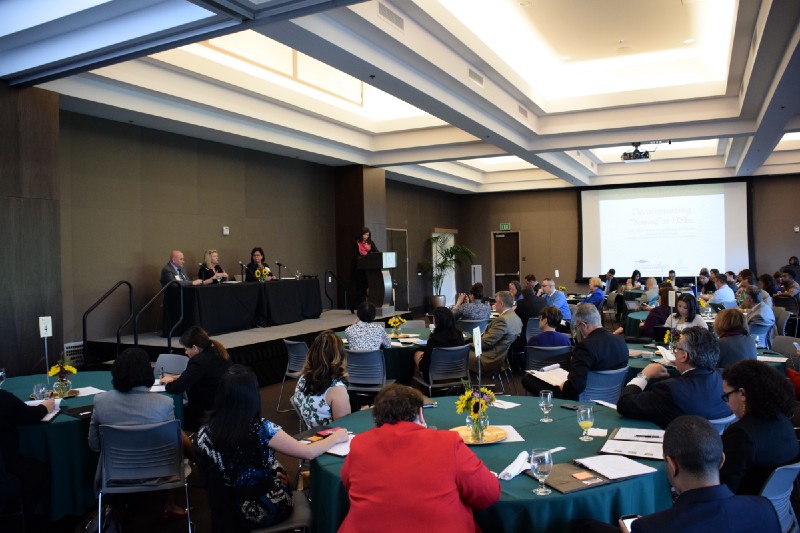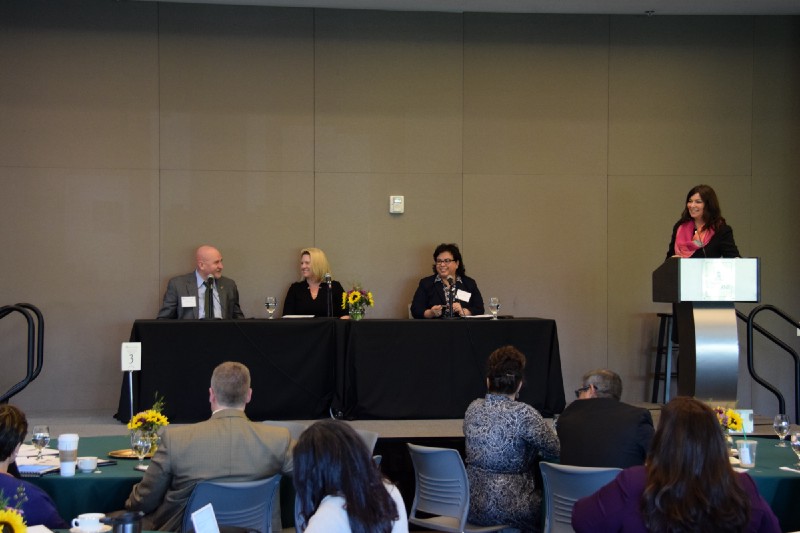State Educational Leaders Discuss Latino Student Success at Southern California Symposium
LA VERNE, California (March 16, 2017) — About 80 college educators and administrators
from across California gathered today on the campus of the University of La Verne
to discuss what it means to serve Latino students in the context of state and national
policies, as well as to share evidence-based practices. “Accelerated growth in the U.S. Hispanic population has led to a rapid rise in Latino
enrollments at higher education institutions across the United States,” said the event’s
synopsis on the University of La Verne’s website. This trend calls for college administrators
in California to “choose how to intentionally serve rather than merely enroll Hispanic
students.”
“Accelerated growth in the U.S. Hispanic population has led to a rapid rise in Latino
enrollments at higher education institutions across the United States,” said the event’s
synopsis on the University of La Verne’s website. This trend calls for college administrators
in California to “choose how to intentionally serve rather than merely enroll Hispanic
students.”
A key focus of the event was a live panel discussion titled Deconstructing Serving
at HSIs: Individual Stories of Leadership and Practice, hosted by San Bernardino Valley
College President Diana Z. Rodriguez, CSU Sacramento President Robert Nelson, and
CSU Channel Islands President Erika Beck. “I think it’s important that we, as educators, continue to strengthen our relationships
with other colleges to help address any gaps in services that may have been overlooked,”
said SBVC President Diana Z. Rodriguez. “I am proud to work in a college district
that really values this type of cross-institutional collaboration.”
“I think it’s important that we, as educators, continue to strengthen our relationships
with other colleges to help address any gaps in services that may have been overlooked,”
said SBVC President Diana Z. Rodriguez. “I am proud to work in a college district
that really values this type of cross-institutional collaboration.”
As of 2017, San Bernardino Valley College’s student population is about 60% Hispanic, with many being first-generation college students. SBVC has received federal designation as a Hispanic-Serving Institution (HSI), and in 2015 became the first college in the state to open a Dreamers Resource Center, a counseling department that helps Dreamer students navigate the challenges of enrolling and attending college.
“Our college was created for our community,” said Rodriguez, “and it absolutely thrills me when I get to see how much our programs impact the lives of thousands of families in the Inland Empire on an annual basis.”

